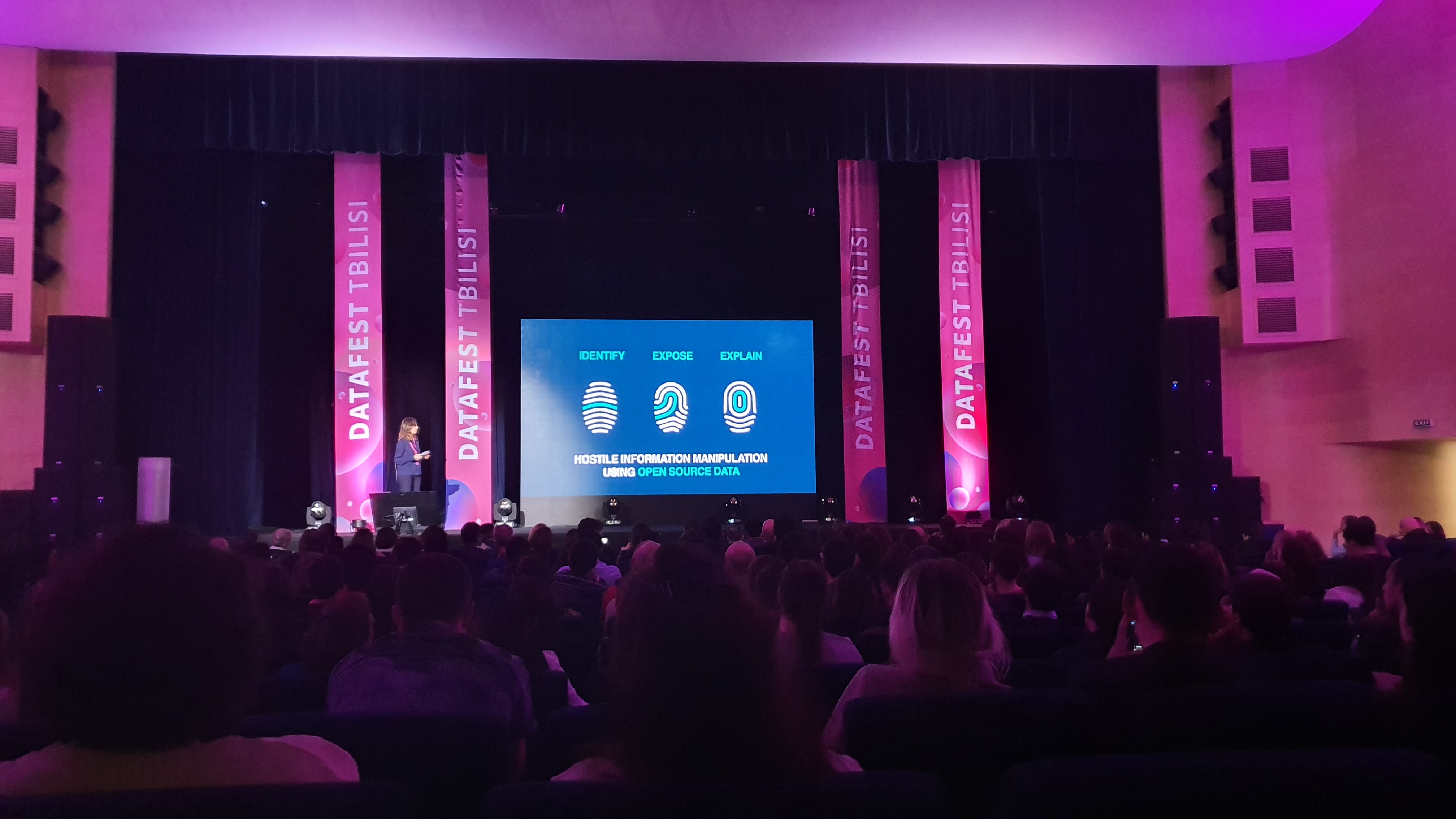Did you know that 90% of data existing today was produced in the last two years? And, do you know in what way to use data for initiating social changes, storytelling or business development? What is data science, and what are crucial digital skills we must know to protect ourselves online? What are the key digital skills we must know to protect ourselves online? These and other questions were answered by renowned experts, participants of this year’s DataFest.
The topic of the third DataFest held mid-November in Tbilisi (Georgia) was centered on the role of data in everyday and business life of individuals and communities. Organizers, i.e. three local organizations ForSet, Tbilisi Startup Bureau and MaxinAI cooperating with international partners, gathered around many journalists, CSO activists, marketing specialists, business professionals, government officials, data analysts, developers and designers working with data or willing to explore data and its latest trends.
The agenda encompassed 12 main themes: data visualization, data science and artificial intelligence, data and Financial Technologies (FinTech), data for business and marketing, data startups and others. The DFC team found very important the latest discoveries in data and cyber-security, and trends in open-source research.
Raising awareness of the omnipresence of disinformation
Presenting their plans and projects, DFRLab’s Anna Pellegatta highlighted how important is to raise awareness of the omnipresence of disinformation and give some valuable open source tools for combating that phenomenon. She pointed out to many opportunities, but also vulnerabilities in the interconnected world we are living in and emphasized that there are those who would like to exploit those weaknesses for their own gain.
One of the most interesting presentations was Fake Anything: The Art of Deep Learning, held by Eyal Gruss, a machine-learning researcher from Israel. Eyal showcased the recent state of the art applications of generative deep learning algorithms in image processing and language modeling, as well as the power of deepfake, an increasingly popular topic around the globe.
Organizing practical workshops, the hosts gave participants a better insight into the most important topics and enabled them to learn practical skills
Mikalai Kvantiliani from Belarus and his workshop on cyber-security helped us to understand better the current trends and threats online, in order to protect our data better. Eto Buziashvili and Lukas Andriukaitis from the DFRLab gave the audience a better insight into coordinated inauthentic behavior and social media bots and how to investigate them and presented the ways authoritarian regimes want to hide the facts from the public. Andriukaitis demonstrated how they use open source intelligence to help identify, expose and explain disinformation and malicious narratives online.
Turning data into interactive stories
It was concluded at the panel that at the global level Facebook is the platform of choice among those willing to manipulate the facts, followed by Instagram and Twitter.
Marek Miller’s workshop dealt with data journalism, with reference to the increased role numerical data play in the production and distribution of information in the digital era. Turning data into interactive stories by using open source tools like Google MyMaps or Flourish was very useful for us because it showed us how the process was simple. Presentation of a London-based data scientist Cheuk Ting Ho taught us what kind of technology hides behind a chatbot and in what way it is created.
Besides the events on the mainstage and the vast number of workshops over the course of 3 days, the hosts gave us an opportunity to try something quite unexpected. OSCE Office for Democratic Institutions and Human Rights (ODIHR) in partnership with developers from Benetech created a video game Starlight Stadium, which theme was human rights monitoring mission in real life.
Eight digital skills
Digital skills we must know and be aware of:
- Digital identity – the ability to create and manage one’s online identity and reputation
- Digital use – the ability to use digital devices and media, including the mastery of control in order to achieve a healthy balance between offline and online life
- Digital safety – the ability to manage risks online (cyberbullying, radicalization, etc) as well as problematic content (violence) and to avoid and limit these risks
- Digital security – the ability to detect cyber threats (hacking, scams, malware), to understand best practices and to use suitable security tools for data protection
- Digital emotional intelligence – the ability to be empathetic and build good relationships with others online
- Digital communication – the ability to communicate and collaborate with others using digital technologies and media
- Digital literacy – The ability to find, evaluate, utilize, share and create content
- Digital rights – the ability to understand and uphold personal and legal rights, including rights to privacy, intellectual property, freedom of speech and protection from hate speech.

